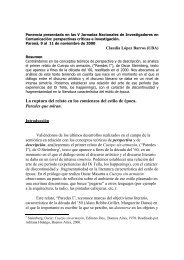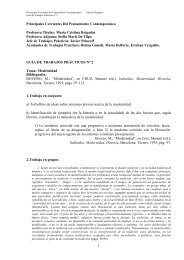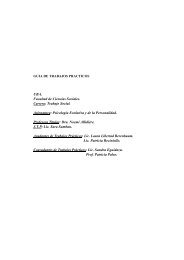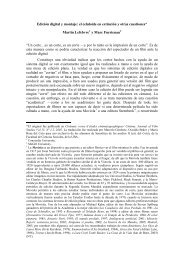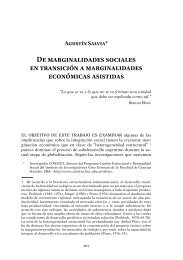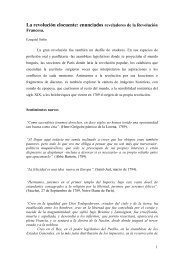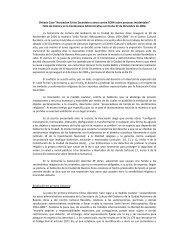Charisma Reconsidered
Charisma Reconsidered
Charisma Reconsidered
You also want an ePaper? Increase the reach of your titles
YUMPU automatically turns print PDFs into web optimized ePapers that Google loves.
24<br />
a new era of cultural creativity might emerge as well. But what we see instead is<br />
the ubiquity of originality, a kind of ongoing cultural change in no particular<br />
direction, for example the decline of which Spengler wrote. This amounts to an<br />
age in which the extraordinary is ordinary, in which changes in values and<br />
attitudes led by the example and personal force of publicly acclaimed personalities<br />
is a characteristic feature of the culture. These considerations point to an ironic<br />
conclusion: that charisma has become mundane, or everyday, and has lost its<br />
special force not because it has become rare but because it has become<br />
commonplace.<br />
The conclusion that we now live in a culture of celebrity and that celebrity<br />
is a concept that bears some resemblance to Weber’s notion of charisma is trite.<br />
Nevertheless it points to a larger problem. Much of the conceptual machinery that<br />
social theory employs to talk about the normative – norms, values, obligations,<br />
and the like – is a product of the secularization of Christian ethics, and of the<br />
particular moment in which Christianity ceased to provide the support that<br />
notions like obligation required, a point that Weber himself made in his comment<br />
that these concepts prowl about in our lives like the ghosts of dead religious<br />
beliefs. Kant’s ethical writings are a product of this situation, and represent a<br />
desperate attempt to overcome it. Alasdair MacIntyre has argued that this<br />
situation, in which concepts live on to perplex us, is a normal consequence of<br />
social changes in which the conditions of application for the original concepts<br />
have changed. Notions of faith and commitment that persist in the present do so<br />
in connection with notions like values; yet even notions like values have come to<br />
lose their original significance. Obligation, one might say, is a term from a world<br />
in which the failure to fulfill a social role produced predictable social sanctions;<br />
‘values’ from a world in which life decisions produced predictable results. ‘Virtue’,<br />
as MacIntyre famously argued, was a term from a world in which the fulfillment of<br />
social roles produced predictable collective benefits (1981: 171). Today these<br />
terms have become merely descriptions of our habitual desires and preferences, so<br />
that a statement of values is a statement of style.<br />
Some such denouement is precisely what one might expect from reading<br />
other passages in the last pages of The Protestant Ethic (1958 [1905]), where the<br />
struggle that capitalism represents is reduced to a matter of sport. In the United<br />
States in the 1990s there was a series of mutually referring bumper stickers with<br />
slogans, beginning with ‘the one who dies with the most toys wins’ – a peculiarly<br />
explicit formulation of the idea that the pursuit of wealth, and more broadly the<br />
question of the meaning of life, is reduced to a matter of sport. These were,<br />
interestingly, responded to by Christians with bumper stickers that have most<br />
recently led to the response, ‘Don’t let the car fool you, my treasure is in heaven.’<br />
The bumper stickers amount to a juxtaposition of a very radical kind between two<br />
variations on the basic Christian theme of salvation already identified by Weber.<br />
But each represents a statement of personal style. Even the topic of salvation itself<br />
JOURNAL OF CLASSICAL SOCIOLOGY VOL 3(1)






